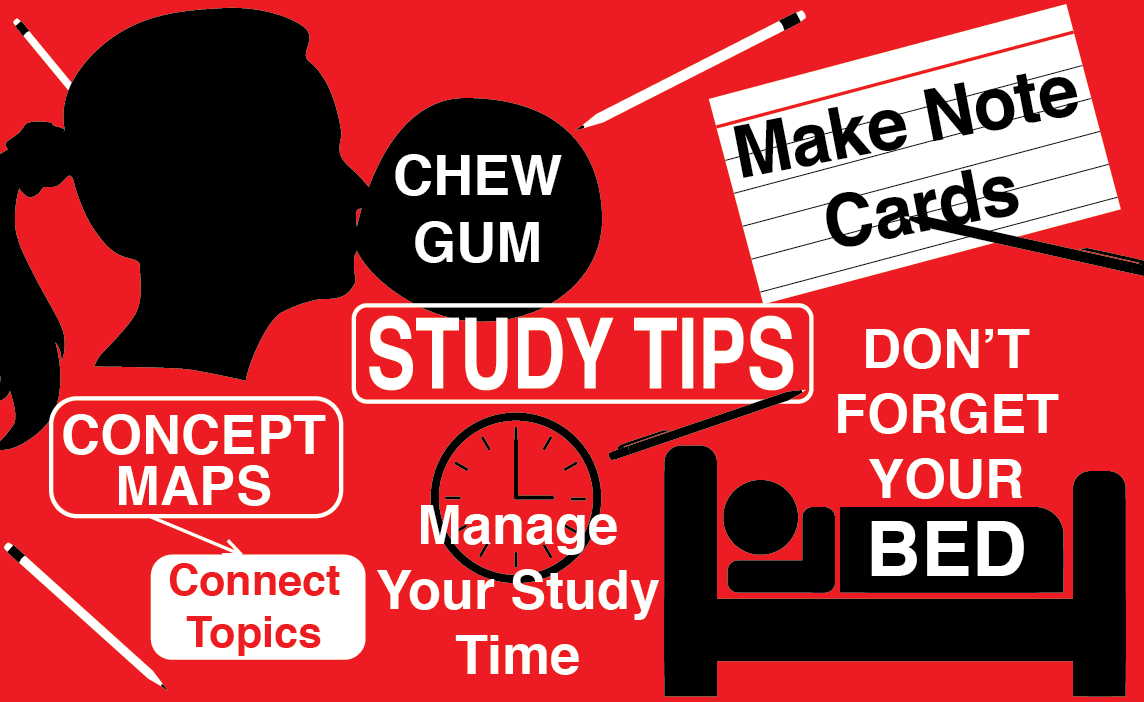Throughout the years, students have heard of various tricks and study methods that are thought to enhance their studying and help them perform better on exams. With it being the season of finals at NC State, many students are going to be using all of their studying rituals in the near future. But, do these crazy study habits really work? What is true and what’s a myth when it comes to studying and learning information?
Students said they had mainly heard the popular ones: “writing information in blue ink can help you remember it better” and “listening to classical music while studying helps you retain information.”
“I always color code my notes by topic,” said Jenna Corey, a junior studying accounting. “It may just be psychological, but it helps me remember different things because I can organize it better.”
Another common tip for students is to chew gum, which is known to enhance concentration and memorization.
“I heard chewing gum while studying and chewing the same gum during the test will help get you in the same mindset as you were studying, and that helps you do better,” said Morgan Young, a junior studying animal science.
In actuality, a student should use a variety of different study methods, depending on what type of material they are learning, according to the advice of Jessica DeCuir-Gunby, associate professor of educational psychology.
DeCuir-Gunby said that one of biggest mistakes students make while studying is trying to use the same known study habits for all types of courses and all types of exams. Some useful strategies she talked about were mnemonic devices for learning lists and patterns, note cards for vocabulary, concept maps for understanding relationships between topics and timelines to learn chronology.
“The best way to remember something is to connect the new information to previously learned information,” DeCuir-Gunby said. “In order to do so, you need to learn how to organize information by using appropriate learning strategies.”
Oftentimes, students wonder how much time they should devote to studying the material before an exam. Both Corey and Young said they never know how much to devote to one subject, and they often feel overwhelmed during finals week because there are multiple tests, some even on the same day, that they have to give their attention to.
“It’s just hard because sometimes you have multiple tests on one day, and often times one ends up taking precedence over the other, even if you don’t mean to,” Young said. “It’s hard to manage your time and devote equal amounts to each test.”
When asked about how students should handle the multi-test platform of the finals period, DeCuir-Gunby said that the best way to avoid running into testing anxiety and getting overwhelmed with finals is to learn how to make a functional study plan.
Blocking off time to study every day, at least a week ahead of each of the exams, will allow students to be in control of their studying and will help them make time to devote to each final. Then as you go on, you can adjust for courses where you need more time to grasp the concepts.
According to DeCuir-Gunby, there is no single, magical study tip that is proven to help you do better on the tests. But as Corey said, perhaps these studying rituals are more beneficial to the psychological aspect of studying, that by making students think that it helps them test better boosts their confidence and enhances their performance. So, one specific study tip may affect each student differently.
“There really are no tricks to learning course information,” DeCuir-Gunby said. “You will need to determine which study strategies work best for you and your courses. This will only come with practice.”













